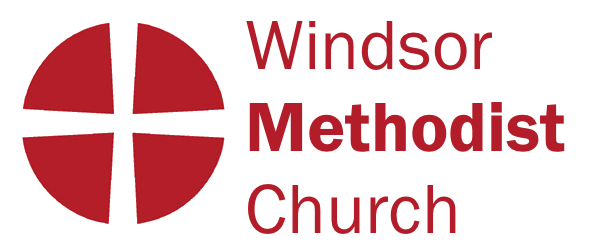Brothers and Sisters
I write this in that strange “now and not yet” place that we are all living through at the moment. The country is starting to open up, but as a non-drinking, non-gym-going, non-recreational shopper who is too cold-blooded for drinking coffee or eating outside in these not-so-warm early spring days, I am not seeing a lot of difference yet. My mind is focused on the day I can go into a coffee shop and have lunch with a friend or invite people round to the manse for afternoon tea and whereas we have a date for that, it is not yet.
Liturgically too, we are living in the now and not yet of the Easter season. The disciples were overjoyed that Jesus had returned to them, but didn’t really know what that meant. For Jesus, the final task has been accomplished. He has beaten the mockers of Golgotha and returned from the dead more emphatically than if he had somehow torn himself down from the cross. He has been declared Lord over sin and death by the actions of the Father and he knows that soon he will return to the Father’s side and the Holy Spirit will come in his stead. For the disciples though, although he spoke of these things, they will have been difficult to understand until the hindsight of post-Pentecost makes sense of them.
If we live in the now and not yet of COVID, wondering what the “new normal” might look like and not really able to understand until it happens, then as Christ’s followers, we also live in the now and not yet of the life of the Church. We know that there is a promise that Christ will return, but it makes no more sense to us than the promise that the Messiah would die, would rise, or would leave them his Holy Spirit made to those first disciples. We are a “travelling, wandering race” as the old song has it, and we travel and wander through a landscape that we do not fully understand because without the benefit of hindsight, we cannot know what the return of Jesus will look like or means.
In a post-resurrection, post-covid, post-truth world, we are called more than ever to be people of integrity. If we cannot be trusted, how can our faith be believed? “Blessed are those who have not seen, and yet have believed” Jesus said to Thomas. It is the faith, the love and integrity of we who carry the story that allows that belief to endure.
God bless,
Vicci
A reflection on Thomas (John 20:24-29) – from Richard
What did you think about the recent census? Did you find it an intrusion into your personal life, or did you relish it as an opportunity to record your own place in these historically difficult times? For those interested in family history, census time is greeted with great excitement, as it means that the census from 100 years ago will soon be released for public viewing. Unfortunately, this has been delayed until next January, but I, for one, will be eagerly awaiting it, so that I can find out more about what my ancestors were doing in 1921.
At this time in the church calendar, we remember the disciple Thomas, who has been rather unfairly labelled ‘the doubter’ or ‘doubting Thomas’. We may not be directly related to Thomas, but in many ways, he is our ancestor of faith or, more pertinently, doubt.
Shortly after Jesus was crucified, the disciples huddled together behind locked doors fearing for their lives, their leader, Jesus, had been killed and their lives were full of fear and uncertainty. Into this scene of turmoil Jesus appears in his risen form, he reassures them, and offers them his peace. But a quick headcount of the gathered disciples, reveals that one of them is missing - Thomas. When he returned, the other disciples couldn’t wait to tell him that they had seen Jesus, risen from the dead, and it is here that Thomas utters the words that will define him forever: ‘Unless I see the nail marks in his hands and put my finger where the nails were, and put my hand into his side, I will not believe.’
It was rather disappointing that the other disciples couldn’t convince him, it didn’t exactly bode well for the future of evangelism! However, when Jesus next appears to the disciples, Thomas is there also, but far from judging Thomas for his lack of faith, Jesus simply offers him the assurance he needs: ‘Put your finger here; see my hands. Reach out your hand and put it into my side. Stop doubting and believe.’
I prefer to think that Thomas didn’t actually inspect Jesus’ wounds, he knew Jesus when he saw him, and he simply exclaims: ‘My Lord and my God!’ In the past year many people, myself included, have had their faith tested and it has been found wanting. Yet in those times when we question our faith, particularly when the normal things of life are turned upside down, we can draw comfort from Thomas. Here was a disciple who knew Jesus personally and who had heard, with his own ears, Jesus say that he would die and then rise from death, and yet when it came down to it, he couldn’t take that step of faith.
In his response to Thomas, Jesus acknowledges that faith can be hard, and also pays tribute to future believers who wouldn’t have the benefit of Thomas’s experience - that’s you and me! “Do you believe because you see me? How happy are those who believe without seeing me!”
In the year 2121 our descendants will look back at the census we have just completed and ponder how we coped with the pandemic, and their faith will be a testament to those of us who kept our faith alive amidst doubt and uncertainty during the dark days of the early 2020s.
Richard
